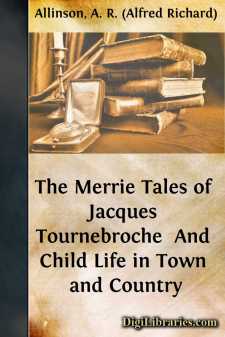Categories
- Antiques & Collectibles 13
- Architecture 36
- Art 48
- Bibles 22
- Biography & Autobiography 813
- Body, Mind & Spirit 142
- Business & Economics 28
- Children's Books 17
- Children's Fiction 14
- Computers 4
- Cooking 94
- Crafts & Hobbies 4
- Drama 346
- Education 46
- Family & Relationships 57
- Fiction 11829
- Games 19
- Gardening 17
- Health & Fitness 34
- History 1377
- House & Home 1
- Humor 147
- Juvenile Fiction 1873
- Juvenile Nonfiction 202
- Language Arts & Disciplines 88
- Law 16
- Literary Collections 686
- Literary Criticism 179
- Mathematics 13
- Medical 41
- Music 40
- Nature 179
- Non-Classifiable 1768
- Performing Arts 7
- Periodicals 1453
- Philosophy 64
- Photography 2
- Poetry 896
- Political Science 203
- Psychology 42
- Reference 154
- Religion 513
- Science 126
- Self-Help 84
- Social Science 81
- Sports & Recreation 34
- Study Aids 3
- Technology & Engineering 59
- Transportation 23
- Travel 463
- True Crime 29
Child Life In Town And Country 1909
Description:
Excerpt
CHILD LIFE IN TOWN AND COUNTRY
FANCHON
FANCHON went early one morning, like Little Red Riding-Hood, to see her grandmother, who lives right at the other end of the village. But Fanchon did not stop like little Red Riding-Hood, to gather nuts in the wood. She went straight on her way and she did not meet the wolf. From a long way off she saw her grandmother sitting on the stone step at her cottage door, a smile on her toothless mouth and her arms, as dry and knotty as an old vine-stock, open to welcome her little granddaughter. It rejoices Fanchon's heart to spend a whole day with her grandmother; and her grandmother, whose trials and troubles are all over and who lives as happy as a cricket in the warm chimney-corner, is rejoiced too to see her son's little girl, the picture of her own childhood.
They have many things to tell each other, for one of them is coming back from the journey of life which the other is setting out on.
"You grow a bigger girl every day," says the old grandmother to Fanchon, "and every day I get smaller; I scarcely need now to stoop at all to touch your forehead. What matters my great age when I can see the roses of my girlhood blooming again in your cheeks, my pretty Fanchon?"
But Fanchon asked to be told again—for the hundredth time—all about the glittering paper flowers under the glass shade, the coloured pictures where our Generals in brilliant uniforms are overthrowing their enemies, the gilt cups, some of which have lost their handles, while others have kept theirs, and grandfather's gun that hangs above the chimney-piece from the nail where he put it up himself for the last time, thirty years ago.
But time flies, and the hour is come to get ready the midday dinner. Fanchon's grandmother stirs up the drowsy fire; then she breaks the eggs on the black earthenware platter. Fanchon is deeply interested in the bacon omelette as she watches it browning and sputtering over the fire. There is no one in the world like her grandmother for making omelettes and telling pretty stories. Fanchon sits on the settle, her chin on a level with the table, to eat the steaming omelette and drink the sparkling cider. But her grandmother eats her dinner, from force of habit, standing at the fireside. She holds her knife in her right hand, and in the other a crust of bread with her toothsome morsel on it. When both have done eating:
"Grandmother," says Fanchon, "tell me the 'Blue Bird.'"
And her grandmother tells Fanchon how, by the spite of a bad fairy, a beautiful Prince was changed into a sky-blue bird, and of the grief the Princess felt when she heard of the transformation and saw her love fly all bleeding to the window of the Tower where she was shut up.
Fanchon thinks and thinks.
"Grandmother," she says at last, "is it a great while ago the Blue Bird flew to the Tower where the Princess was shut up?"
Her grandmother tells her it was many a long day since, in the times when the animals used to talk.
"You were young then?" asks Fanchon.
"I was not yet born," the old woman tells her....




